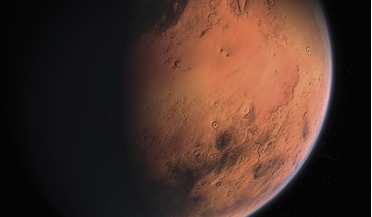 May 2021
In-situ propellant design for Mars ascent vehicles
May 2021
In-situ propellant design for Mars ascent vehicles
.... Currently, we are living in the Earth-dependent era of space exploration, which uses assets such as the International Space Station (ISS). Various experiments have been conducted onboard the ISS to understand the effects of microgravity, such...
 May 2024
Beyond Earth’s magnetic field
May 2024
Beyond Earth’s magnetic field
... of Earth’s magnetic field, and the International Space Station (ISS) is in low Earth orbit, where cosmonauts and astronauts are protected by Earth’s magnetosphere. However, the exploration of deep space, including flights to the Moon and Mars, imply...
 August 2016
Are the days of innovation in global space over - or just beginning?
August 2016
Are the days of innovation in global space over - or just beginning?
... may not seem the most romantic of notions, space activity and exploration continues to light up the public imagination. Social media allows us to see the life of an astronaut as never before, and the International Space Station (ISS) allows...
 September 2016
Co-operating in space transcends national identity
September 2016
Co-operating in space transcends national identity
... and BRIsat. For Europe’s aspirations in human spaceflight, cooperation as a partner in the International Space Station is the most evident illustration. But I am dreaming of a day in the future when a man or a woman from Europe will wear a blue star...
 October 2017
Back to the future - heeding the lessons of history
October 2017
Back to the future - heeding the lessons of history
...of true purpose – which should have been the creation of a productive, profitable and permanent human presence in space. Today, the only programme that approximates this purpose is the International Space Station (ISS), a wonderful example of a multi...
 December 2018
Coffee roasting in space
December 2018
Coffee roasting in space
... projects - lunar and Mars rovers, planetary probes and human exploration aboard the International Space Station (ISS) - have become commonplace. Now, at the dawn of the NewSpace era, we are starting to see innovative new business opportunities, such...